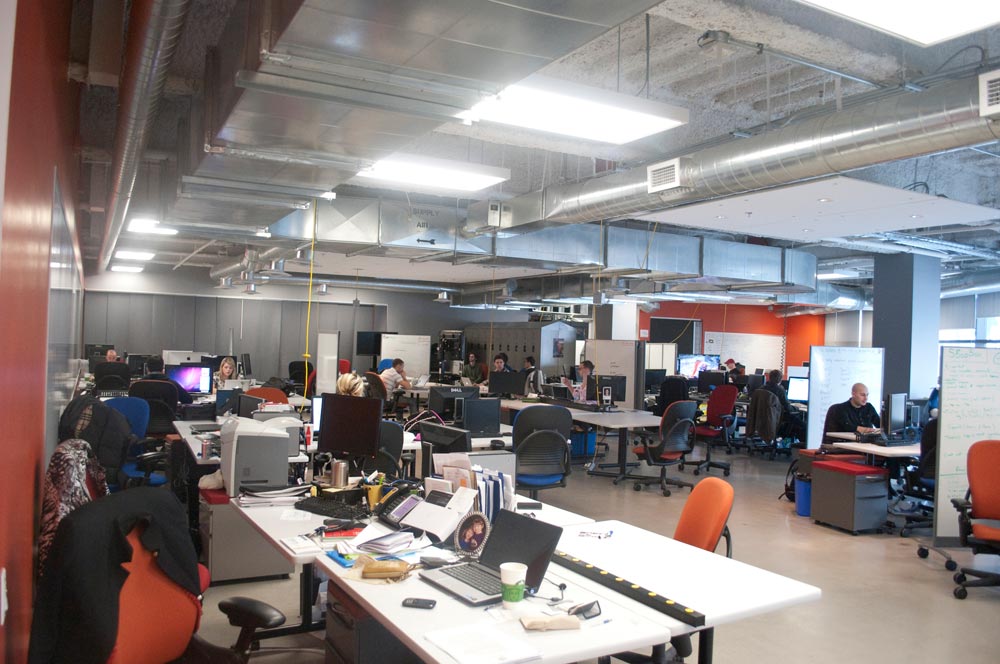By Angela Serednicki
The Eyeopener: Tell me about Tapgage.
Salman Habib: Tapgage is a mobile ad network that works with advertisers and mobile web developers and publishers. There’s a bigger need for advertising through mobile because it reaches more consumers and companies. We work with people who make mobile games, applications and websites. Tapgage distributes advertising and content to mobile users through the use of a full-page takeover of pop up advertising.
Eye: What’s your role in the company?
S.H.: I’m one of the co-founders of Tapgage. I’m in charge of business development, meaning that I work with other publishers and developers to make mobile applications to help begin to deliver advertising. These publishers and developers make mobile applications and websites.
Eye: I’ve read online that you started venturing into the world of startups and entrepreneurship in university. Can you tell me a little bit more about that?
S.H.: I took my cousin’s recommendation and completed a finance major; it was a great degree for me. I was very involved and was president of the Ryerson University Finance Society (RUFS). I was also part of the corporate relations committee with the Ryerson Commerce Society (RCS).
I first started with entrepreneurship when I took my first entrepreneurship course, ENT-527. I fell in love with the idea of being able to create my own business; it was the only thing that resonated with me so deeply. I took the theory I learned from that course and put it to work that summer when I got my first contract as a social media consultant and brand manger for Blue and White Taxi in Mississauga.
Business is all about contacts. I got into Blue and White because of a contact, I got in there, and worked for free for a couple of months. It’s always hard when you’re first starting off, but it’s important to work for free in order to show the company your capability.
You have to make the company question if it makes sense for them to pay you in order to keep you around. I worked for a couple of months and created a need for myself in that company, and after a while I started gaining revenue and networks. You have to show them that you can do it and after that, it’s easy.
Eye: What was the biggest challenge that you faced?
S.H.: I was in a pretty brutal car accident five years ago. I was in physiotherapy for about eight months; it was my biggest hurdle but also biggest point of realization. Somewhere along that line it was like rock bottom and thought that if there was a bottom, there had to be a top. It was from that point on that I reprogrammed my way of thinking because it prepared me for more than anything that I dealt with so far. It was a simple lesson of me being able to overcome something.
Negative thoughts create a downward spiral, once you start, it just spirals and I think that it’s very similar in entrepreneurship. You can’t have negative thoughts. You can’t think that you can’t do anything and you won’t get anything done.
Eye: How do you come up with your ideas?
S.H.: One of the most important things that I’ve learned at Ryerson was that a person should play to their own strengths and weaknesses. I’m very strong with communication, presentation, sales, developing business plans, that sort of thing. I rely on the rest of my team for everything else. My role is communication, while the development team takes care of the ideas and features. In my role, my inspiration and drive to put in more effort is found from my team.
Eye: How did you balance both school and your business?
S.H.: I essentially had two full time jobs: school, and my business. I’d be lying if I said it was rainbows and butterflies, it was probably the most depressing time.
The only thing that will help you overcome that hurdle is your passion for what you’re doing. If you don’t have passion, it’s so easy to walk away and decide to do something else. Passion is the only thing that kept me going.
Eye: What would you tell a student who is interested in launching their own business?
S.H.: A few students actually asked me this question. After they tell me their dream, I tell [them] to do it. It’s kind of brutal and to the point, but I ask them “what have you done so far to pursue this idea?” You always need to step forward instead of just staying in the thinking process of it.












Leave a Reply